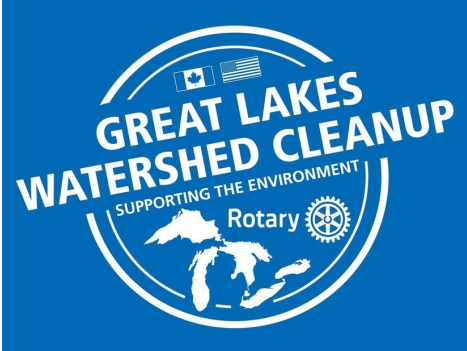 Trash, plastics, and other littered items plague our waterways. This trash poses a threat to terrestrial and aquatic life, often becomes microplastics and harmful toxins, and pollutes one of the most precious and limited natural resources. Shopping carts, tires, furniture, trash, foam cups, plastic containers, and aluminum cans contaminate our waterways and greenways. More than 22 million pounds (10 million kilograms) of trash and plastic pollution ends up in the Great Lakes each year.
Trash, plastics, and other littered items plague our waterways. This trash poses a threat to terrestrial and aquatic life, often becomes microplastics and harmful toxins, and pollutes one of the most precious and limited natural resources. Shopping carts, tires, furniture, trash, foam cups, plastic containers, and aluminum cans contaminate our waterways and greenways. More than 22 million pounds (10 million kilograms) of trash and plastic pollution ends up in the Great Lakes each year.Cleanups from numerous NGO’s, community groups, and individual volunteers are critical to reducing the amount of garbage that collects in our watersheds each year. In order to track our success, the second goal will be to tabulate the number of debris collected from each of the individual cleanup events. And the final and most important goal will be to educate the public to the importance of protecting our waterways and to instill a sense of stewardship towards our Great Lakes.
The Rotary Great Lakes Watershed Cleanup event was created to:
- Improve the aesthetics of the Great Lakes by removing garbage from public areas and roadsides.
- Reduce the amount of plastic and litter on our lands and in our waterways.
- Remove waste that could potentially be ingested by pets and other wildlife.
- Provide an opportunity for public participation in collaborative activities.
- Educate the public about the effects of littering, the importance of recycling, and to instill a sense of stewardship.
- Collect and report back to organizers cleanup metrics to track the impacts of all the cleanups.
Opportunity:
- Engage as many Districts, Clubs, Rotarians, Rotaractors, and other volunteers around the Great Lakes Watershed
- Each Club should find out what is happening in their community regarding clean-ups. Engage with local Conservation Authorities, Watershed Groups or local NGO’s to see what is already planned in your area and to coordinate or partner with them
- If there is not an event, plan to organize your own
- Support will be available to each Club to help to organize the event
- Correspond with the District contact to provide cleanup event date(s), location, and lead contact person for each event.